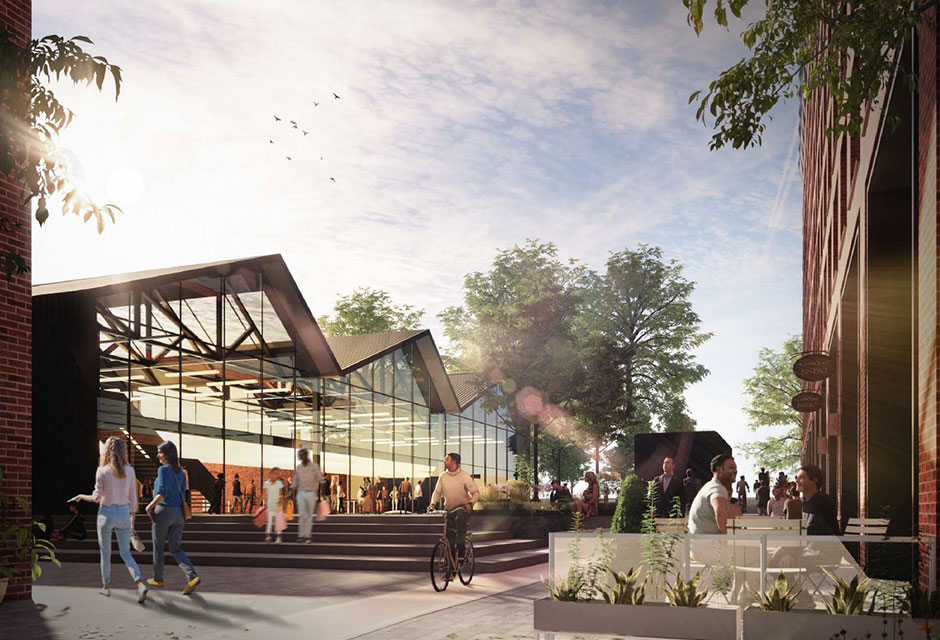Levelling Up Fund: What have we learnt from Round 1?
Many of our towns and high streets – the places we call home – are enjoying a resurgence, thanks to an influx of much needed funding from initiatives including the Government’s Future High Streets Fund, Towns Fund, and the Levelling Up Fund (LUF). What exactly is driving change?
Many people and communities around the UK have felt ‘left behind’, as high streets battle with declining footfall, empty shops, lack of amenities and tired public realm. Yet the recent Government investment has marked a time of regeneration and renewal for our places. As part of a broader range of measures to help support the UK economy and “Build Back Better” after the pandemic, it is an excellent opportunity to close regional disparities and address numerous inequalities.
On the ground delivery
One of the most recent capital funding programmes announced in the Chancellor’s 2020 Spending Review is the £4.8bn LUF. The programme invites funding across several rounds. The first round prioritised projects which could demonstrate third party or private investment and the ability to begin delivery on the ground in the 2021-22 financial year.
During this competitive phase, we supported as many as thirteen applications from local authorities, with an approximate ask of £200 million to support the regeneration of deprived areas. The applications focused on a range of projects, including investment in new housing and mixed-use developments, delivery of new traditional and innovative skills centres, modern public realm, and improvements to highway infrastructure.

Architect’s impression of Capital&Centric’s Goods Yard Development in Stoke-on-Trent
Do you feel ready for the next round?
How can local authorities make sure they can benefit from the next rounds of funding?
Often, we see the quality of funding applications let down when the application timescales are underestimated. Local authorities must move quickly, and we’ve set out some important lessons learnt to prepare local authorities for the LUF.
1. Prioritise. Start prioritising the projects that will genuinely make a difference when it comes to improving people’s lives. What will make people proud to call the places they call home? For example, better transport links and enhanced digital connectivity could help bring them closer to job opportunities and significantly improve their economic outlook.
It is essential to understand and reflect the specific and diverse needs of any particular place. The councils we’ve worked with on the application have drawn from their development pipelines, which are themselves informed through strategic and local plans. The benefit here is that the upfront strategic thinking has already been done and can assure Government that the money will translate quickly into delivery.
2. Engage. There is no ‘one size fits all’ solution to regeneration, and the focus should be firmly on revitalising what is most important to local communities and the local area. That’s why carrying out solid stakeholder and community consultation exercises is so vital. Working with local people to ensure you have the appropriate buy-in to support any proposals can often make or break regeneration schemes.
3. Mobilise. You’ve identified the projects; now what? Local authorities should prepare the project narrative and brief, particularly where more than one project needs to be presented as a package. A clear mandate will enable internal teams and functions to better prepare and support with a strong response and bid when applications open.
Preparing a bid adds to everyone’s workload, so bring in external expertise where required – including the private sector, designers, economic consultants, and delivery experts. Where there are the necessary budget approvals in place, the mobilisation of the delivery team can commence feasibility studies, land assembly, designs and surveys. These will all be essential for obtaining planning permissions and early mobilisation will show that you’re ready to hit the ground running. When it comes to securing funding, deliverability is critical.
4. Manage. You need to give the application process the time, attention and resources it deserves. Run the LUF bid preparation as a project in its own right. Develop a bid programme, ensure resources are available and that everyone is clear about their roles and responsibilities. Ensure to agree on governance processes in advance, including who will input to the review and sign-off process.

Architect’s impression of Capital&Centric’s Goods Yard Development in Stoke-on-Trent
A once in a lifetime opportunity
The LUF and other Government funding for our places, including town centres and high streets, represents a once in a lifetime opportunity to transform and accelerate the delivery of viable and sustainable places, which people value and care for. Public spending is enabling growth more than ever, so it is critical to draw from this with projects that represent value for money and deliver robust benefits and positive outcomes for local communities.
To find out more about how we can support Local Authorities in managing or inputting to future rounds of LUF applications, please contact:
Kaushal Patel at kaushal.patel@arcadis.com
Nick Kealey at nick.kealey@arcadis.com




